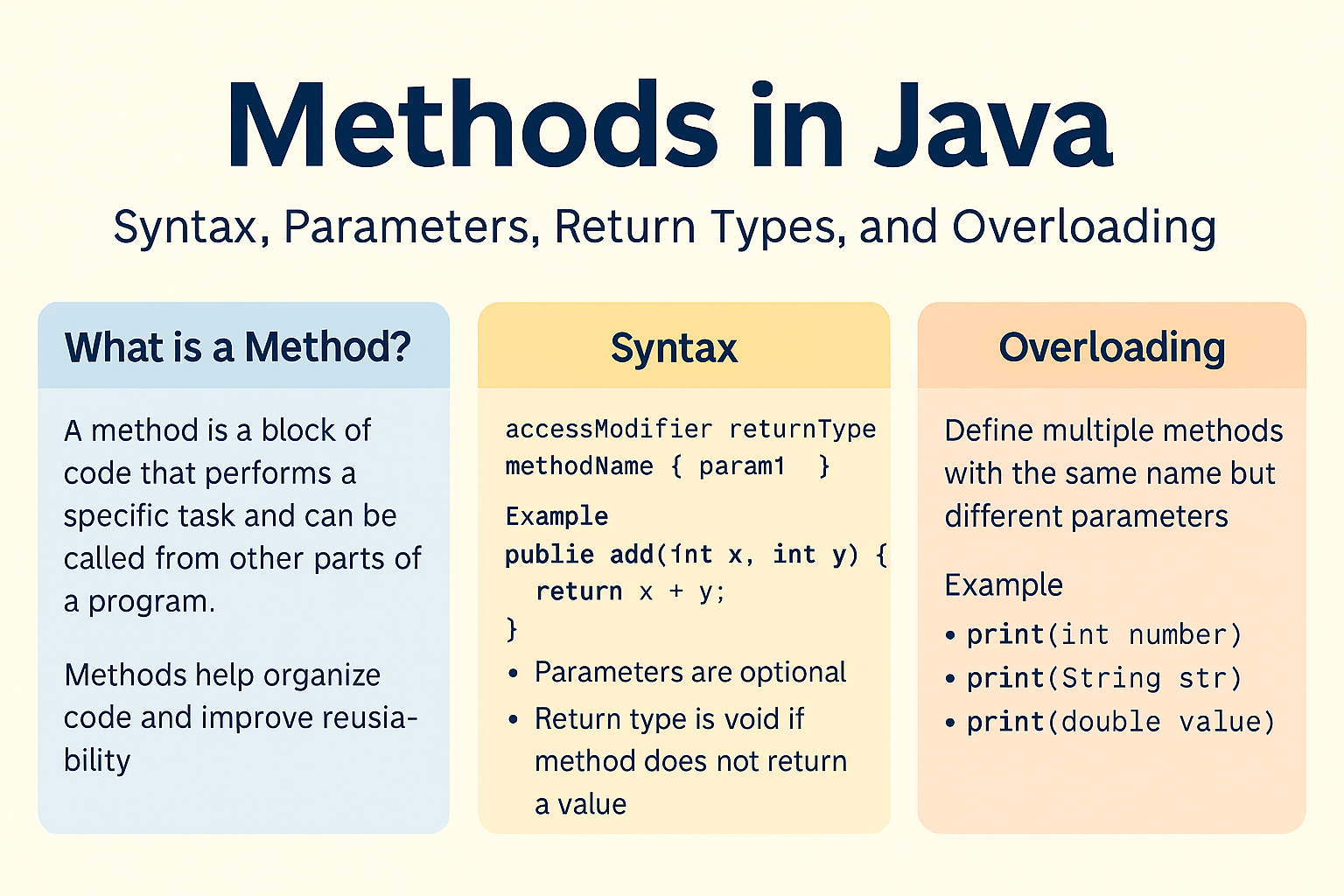Methods in Java – Syntax, Parameters, Return Types, and Overloading
Methods in Java are blocks of code designed to perform specific tasks. They improve code reusability, readability, and maintainability by breaking programs into modular pieces. A well-structured method also helps in debugging and testing individual logic.
✅ What is a Method in Java?
A method is a set of statements grouped together to perform an operation. Every Java application uses methods extensively.
🔍 Method Syntax
<access_modifier> <return_type> methodName(parameter_list) {
// Method body
return value; // Optional based on return type
}
Example:
public int add(int a, int b) {
return a + b;
}
✅ Method Parameters
Types of Parameters:
- Formal Parameters: Declared in method definition.
- Actual Parameters: Values passed during the method call.
Example:
public void greet(String name) {
System.out.println("Hello, " + name);
}
greet("Alice"); // "Alice" is the actual parameter
✅ Return Types
- Void: No value returned.
- Primitive: int, float, boolean, etc.
- Objects: Can return arrays, collections, or custom classes.
Example:
public double calculateArea(double radius) {
return Math.PI * radius * radius;
}
🔁 Method Overloading
Method overloading allows multiple methods with the same name but different parameter lists.
Example:
public int add(int a, int b) {
return a + b;
}
public double add(double a, double b) {
return a + b;
}
✅ Rules for Overloading:
- Different parameter types or counts.
- Return type alone cannot differentiate methods.
- Overloading works at compile-time (static polymorphism).
🚫 Common Mistakes
- Forgetting to match return type with
returnstatement. - Overloading methods incorrectly by only changing return type.
- Using too many parameters – consider objects or builders instead.
💡 Best Practices
- Use descriptive names that indicate purpose.
- Keep methods small and focused on a single task.
- Follow consistent naming conventions (camelCase).
- Favor method overloading over writing repetitive code.
🧠 Interview Relevance
-
Q: What’s the difference between method overloading and overriding?
A: Overloading happens in the same class with different parameters. Overriding happens in subclasses with the same signature. -
Q: Can you overload the
main()method?
A: Yes, but JVM always calls themain(String[] args)version.
🧩 Java Version Relevance
| Java Version | Feature |
|---|---|
| Java 1.0 | Methods and overloading introduced. |
| Java 5 | Varargs introduced for flexible parameters. |
✅ Summary
- Methods are reusable blocks of code in Java.
- Parameters and return types define a method’s interface.
- Overloading provides multiple versions of the same method.
- Follow best practices for readability and maintainability.
